Research and Support
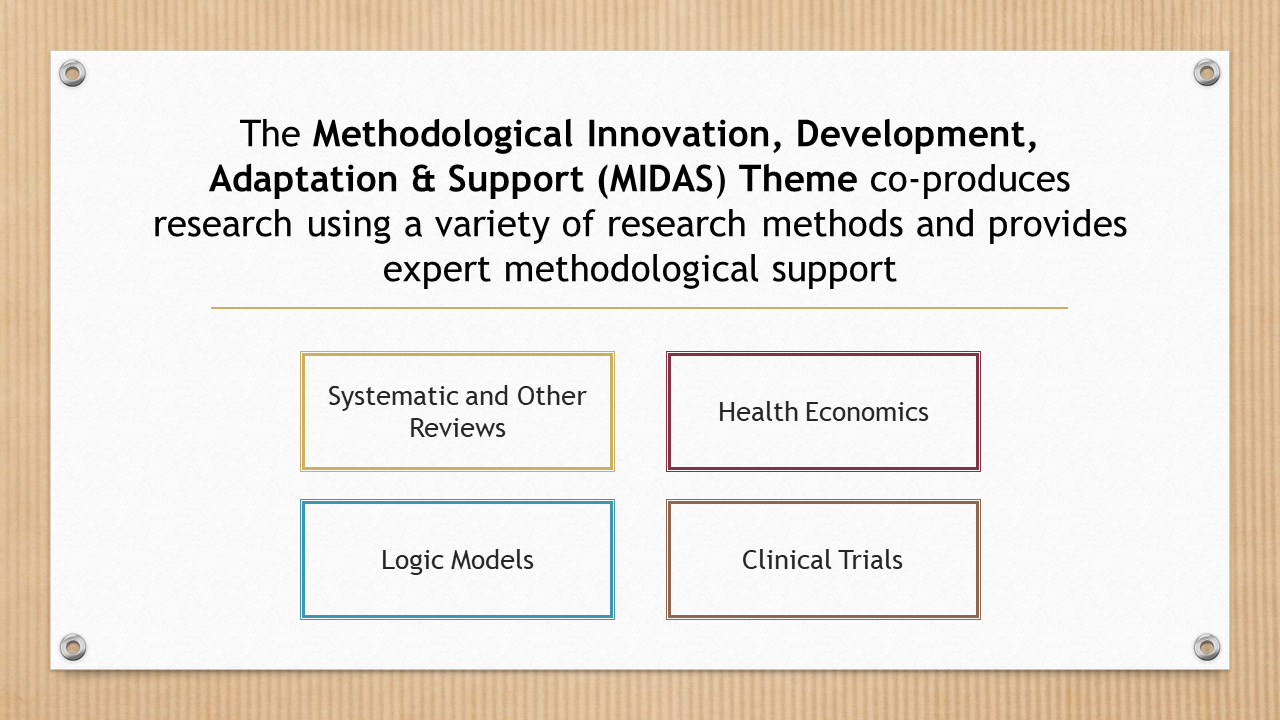
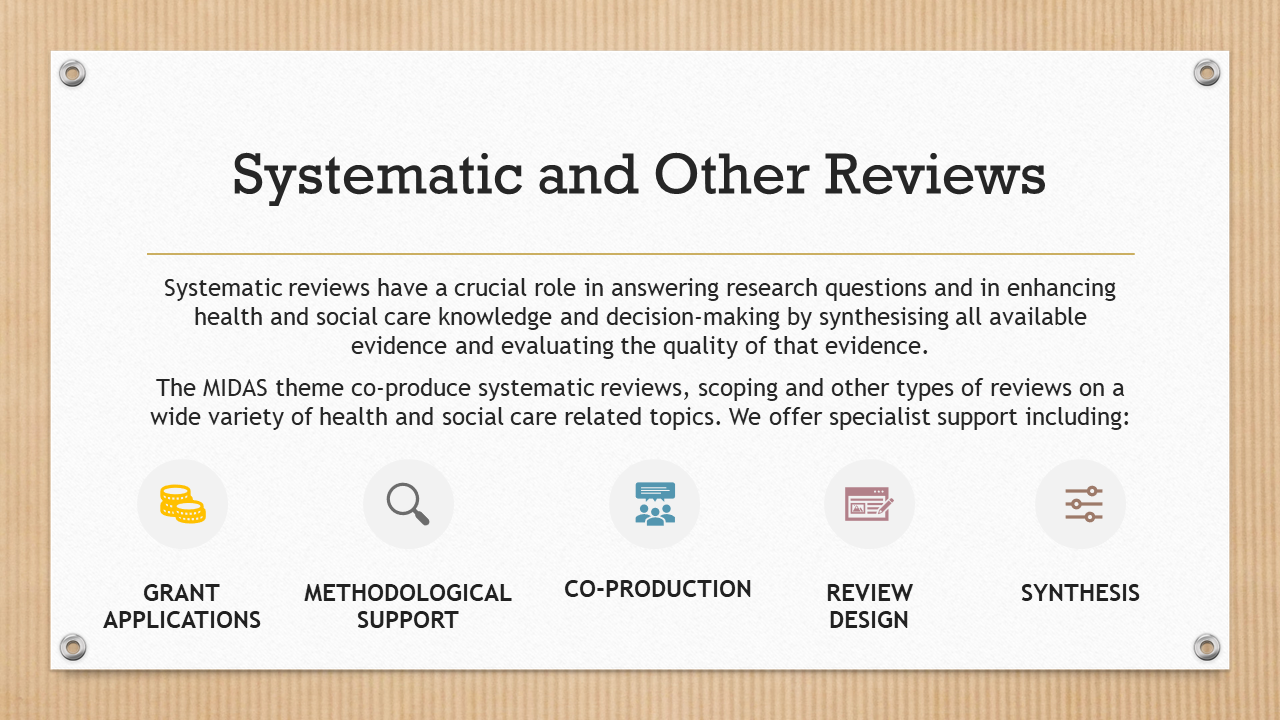
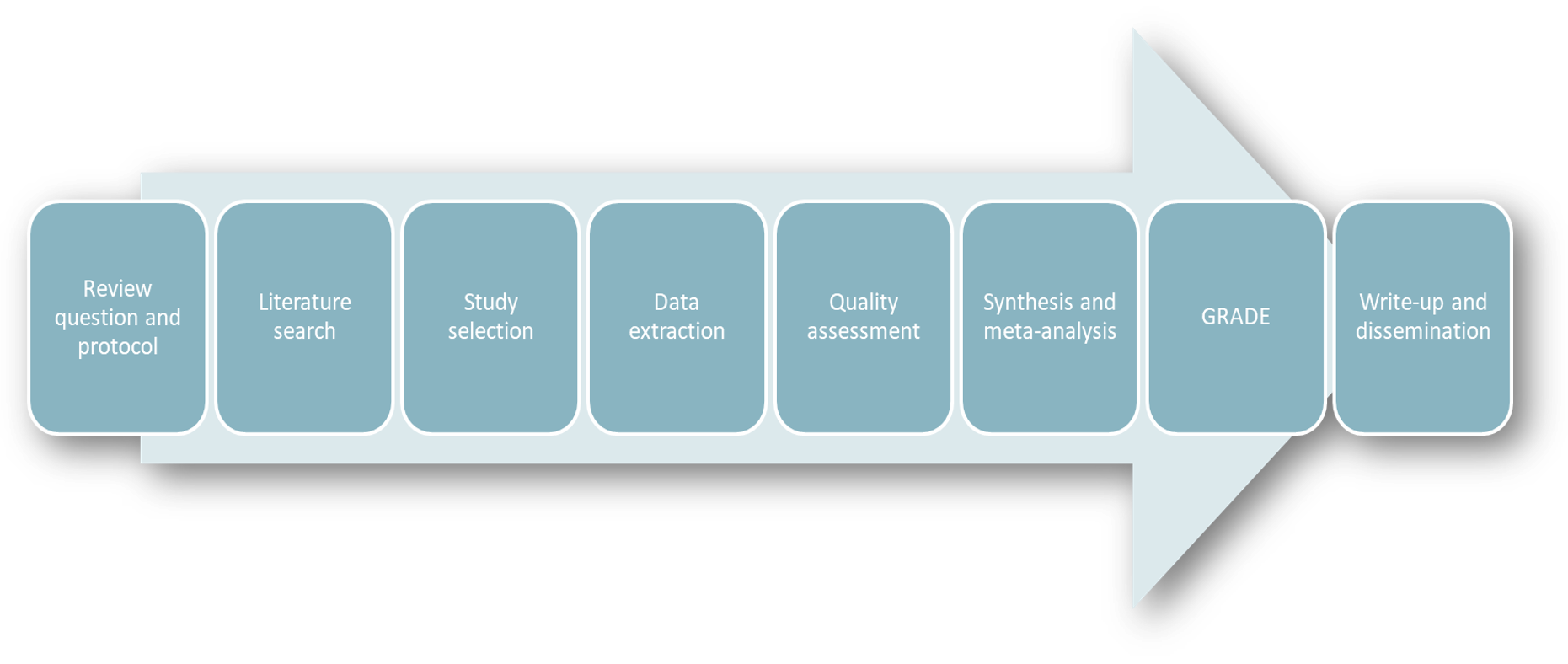
Some examples of recent MIDAS review projects include:
Preventing falls at home among people with intellectual disabilities: A scoping review
The prevalence of mental health conditions in the health care workers exposed to mass outbreaks
Barriers and facilitators of quality improvement collaboratives to improve stroke care
The prevalence of comorbidities in epilepsy
The prevalence of comorbidities in rheumatoid arthritis
Barriers and facilitators to deprescribing in primary care
Screening for aspiration risk associated with dysphagia in acute stroke
The accuracy of pulse oximetry in measuring oxygen saturation by levels of skin pigmentation
Analytical frameworks and outcome measures in economic evaluations of digital health interventions
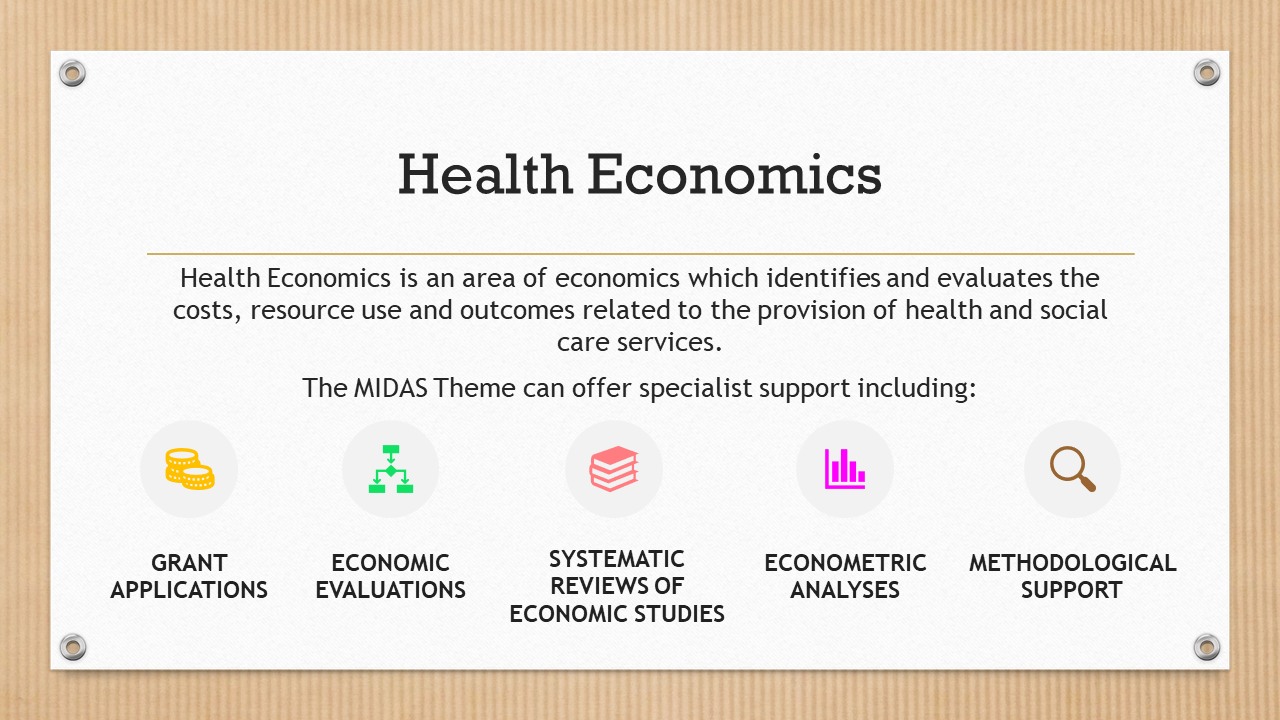
Some recent examples of our Health Economics work include:
SPUtNIk trial – Economic evaluation of two imaging techniques for the diagnosis of malignancy in solitary pulmonary nodules.
REVERSE feasibility study – Resource use and willingness-to-pay analysis on the use of blood pressure self-monitoring by prehypertensive people.
QALYs systematic reviews: Digital Health and Learning Disabilities – Reviews of economic literature on areas where quality-adjusted life years (QALYs) may not fully reflect outcomes.
Effects of shielding on mortality during COVID-19 (with IPH) – Discrete time hazard model to investigate the effects of shielding across COVID-19 pandemic phases.
Discrete Choice Experiments (DCEs) – Eliciting preferences from participants regarding COVID-19 policies and consequences (without directly asking them to state their preferred options).
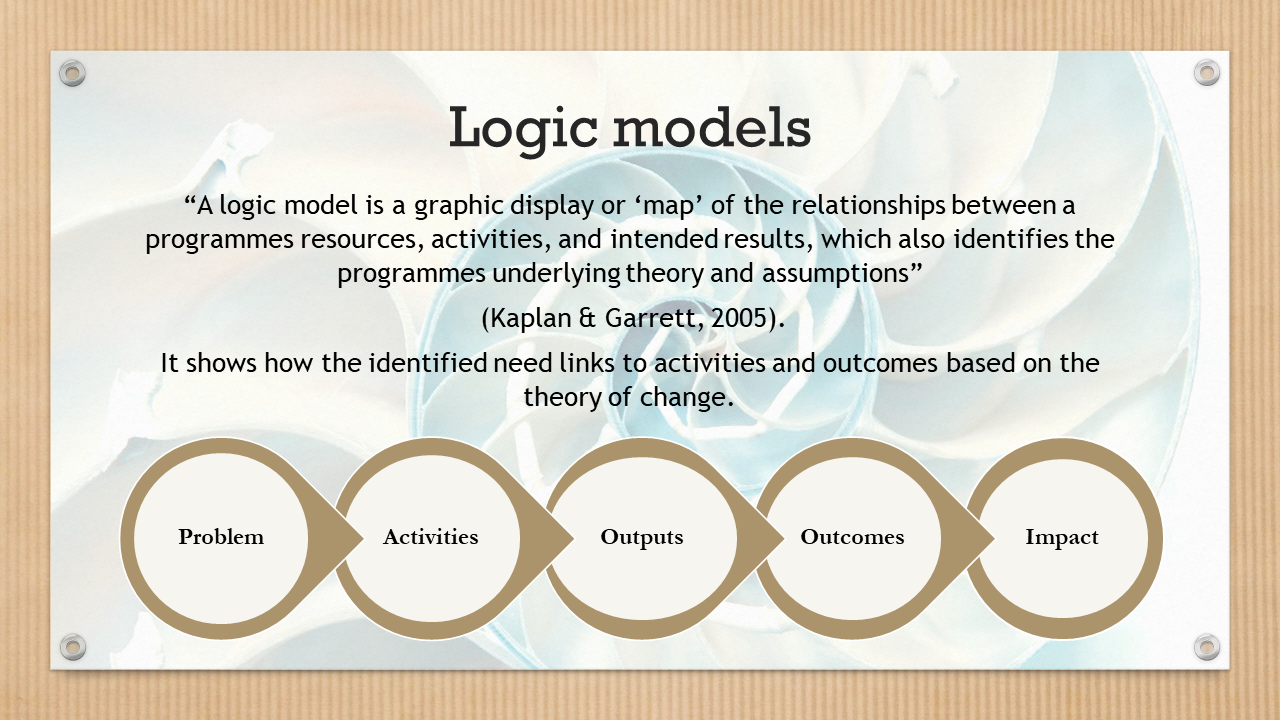
An example of a logic model that was created with MIDAS support: Beach School Logic Model
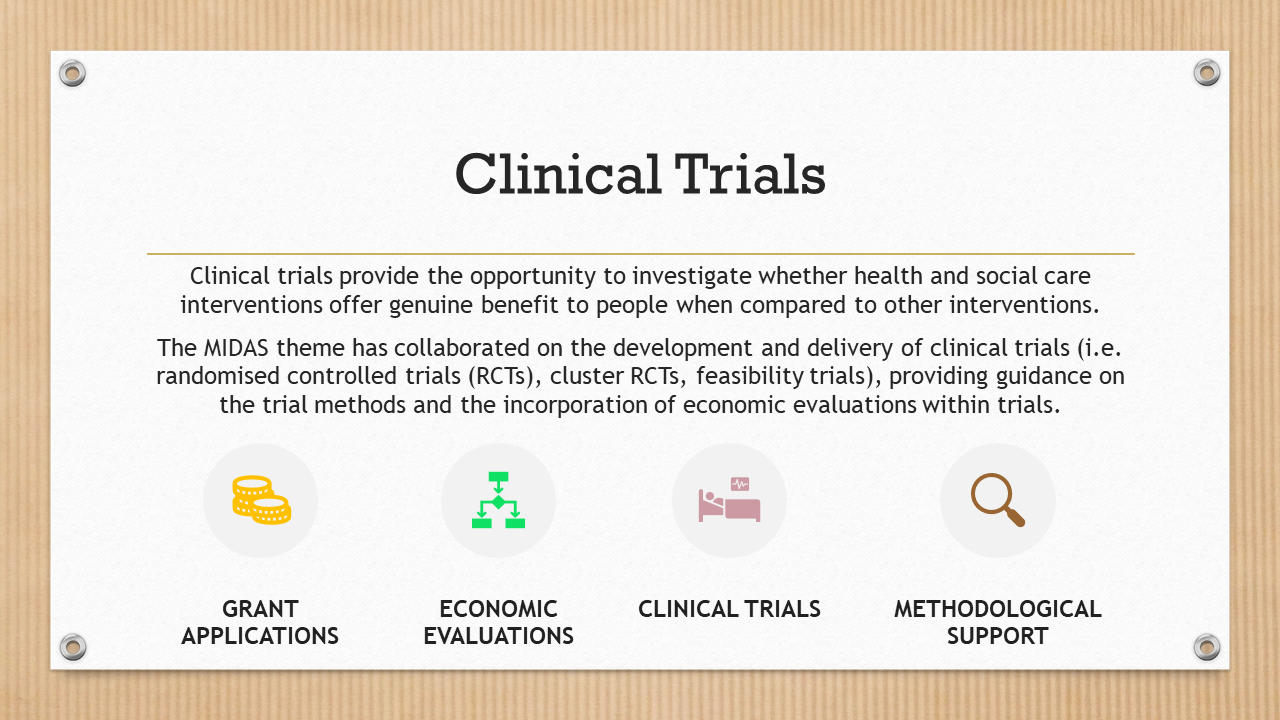
Recent examples of trials MIDAS has collaborated on include:
COMMITS Trial: Confirming the Mechanism of Motivational Interviewing Therapy after Stroke: a multi-centre randomised controlled trial
MANTRA Trial: Use post-operative antibiotics following surgery for patients with mandible fractures
MEND Study: Mental health prevention and promotion in general practice settings: a feasibility study
SPaCIS Trial: Use of the Stroke Patient Concerns Inventory in Stroke Outpatients Clinics: a feasibility cluster randomised controlled trial
STIMULATE-ICP Trial: Symptoms, Trajectory, Inequalities and Management: Understanding Lond-COVID to Address and Transform Existing Integrated Care Pathways
REVERSE Study: Self-monitoring of blood pressure in pre-hypertension to reduce cardiovascular risk: a feasibility study